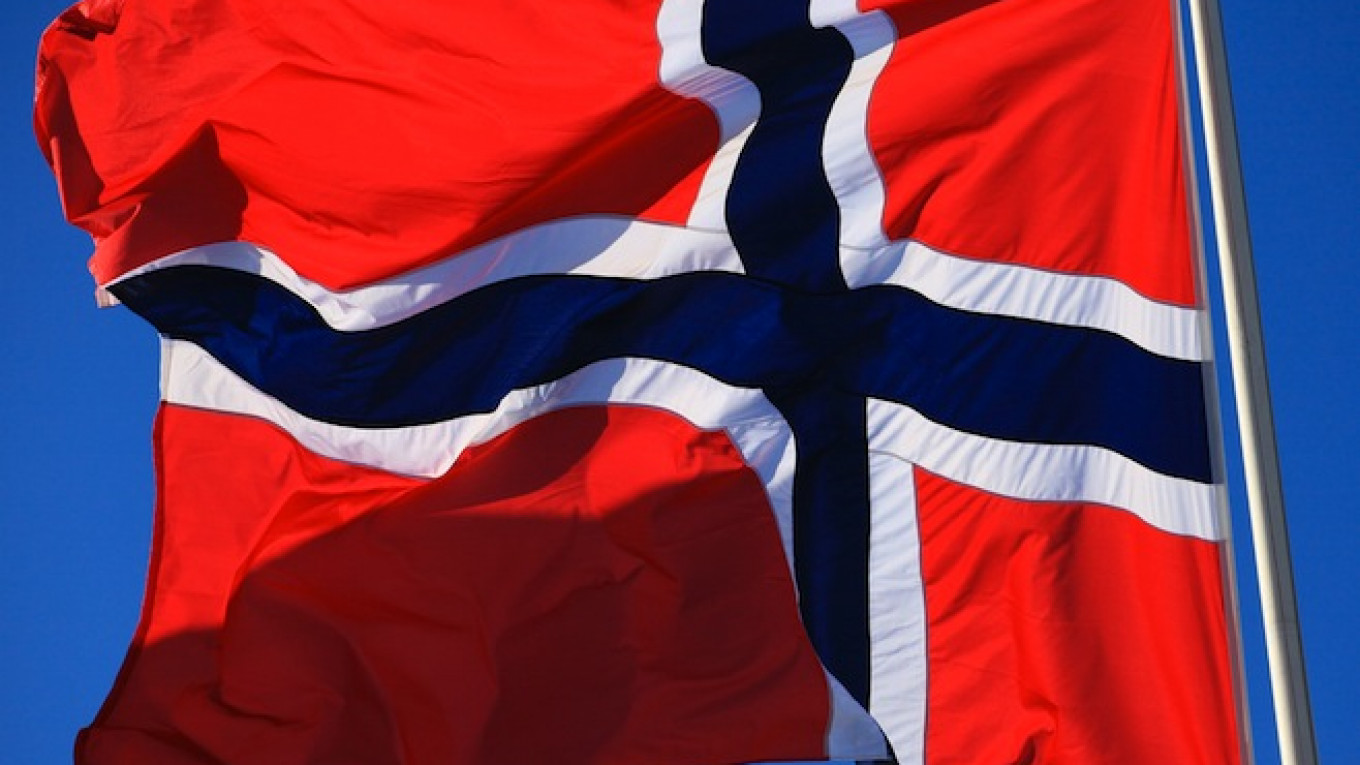OSLO — Norway's $885 billion sovereign wealth fund is likely to hang on to its $8.2 billion worth of Russian assets despite Western sanctions on Moscow, but does not plan further purchases because of political risk, it said Wednesday.
The fund, one of the world's biggest investors, has $8.2 billion invested in Russian bonds and stocks, and kept that holding broadly unchanged in recent months, its chief executive, Yngve Slyngstad, told a news conference.
Over that period, Western countries imposed sanctions on Russia, accusing it of backing separatist rebels in eastern Ukraine. Moscow, denying the charge, hit back by stopping imports of many food products.
When asked if the fund has responded by reducing stakes in Russian companies like energy firms LUKoil, Rosneft and Novatek, or Russia's top banks, Slyngstad said: "It has not had any effect in the form of sales in those companies."
With one of the longest investment horizons among any investor in the market, the fund is often a big buyer during periods of market turbulence. But Slyngstad said this rule did not apply to volatility in Russia because it was due to geopolitical risk.
"In the last eight months in effect we have not been trading the market … The net activity, both on the equity side and fixed income side is very close to zero," he added.
"As you can see from our holdings from the year-end, the first quarter and now as of today, there has been no changes in the holdings," he later said.
"Therefore I think it is quite easy from that pattern that it is the most likely strategy going forward as well," he added.
The value of the fund's total holding in Russia rose to 50.7 billion crowns ($8.2 billion) at the end of the second quarter from 47.3 billion ($7.7 billion) at the start of the year with the fixed-income portfolio rising to 28 billion crowns ($4.5 billion) from 24.3 billion ($3.9 billion).
Western Bonds
The fund, which saves Norway's surplus oil and gas revenues for future generations, increased its bond holding in Western countries in the second quarter after selling heavily three months earlier.
"The biggest increases in holdings of government bonds were in Japanese, British and German government bonds, while the biggest decreases were in government bonds from Brazil, Canada and Sweden," the fund said in its second-quarter report.
In the U.S., its single biggest investment market, it also increased its fixed income portfolio, just as it did in Italy.
The fund, which manages $174,000 for each of Norway's 5.1 million people and is forecast to grow to $1.2 trillion by the end of the decade, returned 3.3 percent in the second quarter, compared with 1.7 percent in the first quarter.
"Equity markets rose in the second quarter, and emerging markets performed best," Slyngstad said. "Considerable liquidity flowed into the markets, which pushed asset prices up."
The fund's bond holdings fell to 37.6 percent of its portfolio from 37.7 percent three months earlier, while equity holdings rose to 61.3 percent of the fund from 61.1 percent.
The fund also said it would double its leadership group to 12 people, setting up a separate leader group for real estate and also creating a position for control and compliance. Slyngstad will no longer be in charge of risk assessment and allocations.
See also:
Sanctions-Hit Rosneft Seeking Oil With Statoil on Norwegian Shelf
A Message from The Moscow Times:
Dear readers,
We are facing unprecedented challenges. Russia's Prosecutor General's Office has designated The Moscow Times as an "undesirable" organization, criminalizing our work and putting our staff at risk of prosecution. This follows our earlier unjust labeling as a "foreign agent."
These actions are direct attempts to silence independent journalism in Russia. The authorities claim our work "discredits the decisions of the Russian leadership." We see things differently: we strive to provide accurate, unbiased reporting on Russia.
We, the journalists of The Moscow Times, refuse to be silenced. But to continue our work, we need your help.
Your support, no matter how small, makes a world of difference. If you can, please support us monthly starting from just $2. It's quick to set up, and every contribution makes a significant impact.
By supporting The Moscow Times, you're defending open, independent journalism in the face of repression. Thank you for standing with us.
Remind me later.






